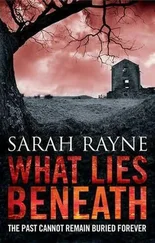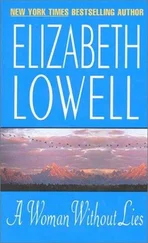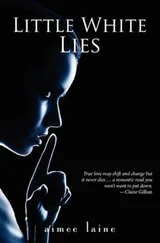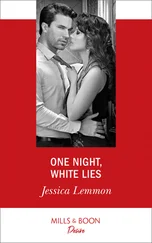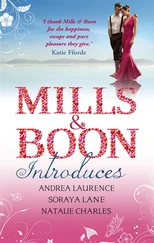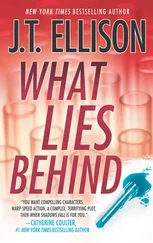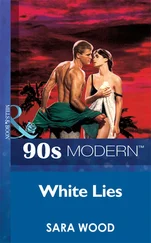Our conversation evaded concrete futures. Joy listed the small things I could get on with while she was away. I swallowed the lies like they were pep pills. If I strayed into emotive areas she’d say don’t , so I didn’t. I shut off my mind so the imaginary time between her leaving and her coming back would cease to exist beyond that domestic span of going up the field to check on the goats or gathering wood for the night.
On Sunday morning Joy wove a band of lavender for my fishing hat then asked me to stay outside till she banged on the window with a mug of tea. I went chopping wood, smashing up old oak planks, so worm-eaten they were half powder. Monsieur Aunay’s grandson came by on the Mobylette to check on some beasts in the top field. I’d only ever seen him at apple gathering, in the back of the cart with the whole family. Now he looked like he was on a rite of passage, his first solo task. He’d borrowed his grandpère’s Mobylette and white crash helmet and he wore a new pair of blue overalls. He checked the bœuf and pushed the Mobylette homeward down the muddy track. I swung the axe a few more times but there he was, standing beside me, holding out a piece of paper. Fund-raising to renovate the salle des fêtes at Landigou, ten francs a scratch card. I bought one, he stood there as I scratched it. Vous avez perdu .
On Monday morning I could see Joy was holding her breath, crossing her fingers, suppressing that rising triumph of getting away, or the terror in case the Land Rover wouldn’t start or the train was cancelled. I played my part to perfection too, and if she noticed maybe she was grateful. For me it was not an act of love but contrition, letting her believe she wasn’t lying, that she was just taking time out from a lifelong commitment and in the process helping herself over a period of self-doubt.
There wasn’t time, and it wasn’t Joy sitting there now. In this woman’s haste to get away from me, the future image of herself had slipped its lead and pulled ahead, choking and laughing. Just simple but significant changes, like she didn’t drink coffee that morning. It makes me manic , she said, like it’d been a lifelong tendency and she was talking to an acquaintance years hence.
As we got in the Land Rover she said to the geese: bye you lot and I knew my last chance had gone. It was the farewell I never got.
Monday was market day in Briouze. We followed our neighbours’ tractors with their orange beacons flashing in the mist, the breath of lumbering beasts billowing through the slats of vacheres towed by mud-lagged Land Cruisers and crapped-on Renault vans. It was the perfect time to turn her back on the place.
We stood on the railway platform away from the smokers. She acted like we were strangers, stepping on a train to be a single girl travelling alone in France, with no winter clothes in her rucksack. I didn’t know she’d packed the silk shirts and cotton socks, the brown dress and safari shorts. Or that she’d be back in Africa before I could sleep again.
The train came in like a row of linked tombs. I tried to say something but my mouth was cold, I couldn’t feel my lips and my jaw locked shut.
—Buck-up, she said.
She gave me her cheek as I went to kiss her mouth, and I caught her smell for a keepsake. By the end of the week it would disappear from her clothes and the bed as the mould and damp remains of Le Haut Bois took over.
She’d once called me ‘the unlucky explorer’ from some poem it doesn’t matter who wrote:
And all my endeavours are unlucky explorers
come back, abandoning the expedition;
the specimens, the lilies of ambition
still spring in their climate, still unpicked;
but time, time is all I lacked
to find them, as the great collectors before me.
I’d read about Joy The Gold-Panning Missionary long before I met her. A flowery article beside an inky newsprint photo in Viva , a Nairobi women’s magazine which Zanna showed me.
Zanna was twenty years older than me. We met in London at a Somali literacy gig in Whitechapel. She was thin, with blue tracing-paper skin, dressed in black with a beehive sitting on her head. She kept her money down her bra in a leather pouch and put belladonna drops in her eyes to make them blue. She said her husband Austen lived in Kenya.
She took me back to her flat in Stoke Newington to show me her photos of Africa, her Pokot stools, Karamajong finger knives, Turkana beads and Masai blankets, her kanzus, kikois and her paintings of Lake Baringo. She changed into a floor-length tie-dyed jellaba and gave me a kikoi to wear while she made us fried-egg sandwiches and told me about Austen. She’d met him in Soho in the fifties when he was a young linguist, half-starved and selling poetry pamphlets outside cafes.
Zanna sold hand-made clothes down Portobello Road and modelled for unknown painters or stashed things for spivs and thugs and Jewish booksellers. She had boxes of photographs of half-starved young men in black rollnecks, gathered like poets outside new coffee bars. Everyone was called Johnny and they were all geniuses, all dead too. Drink, suicide, drugs, starvation, Jack the Knife. When Francis Bacon was starving, Zanna would give him ten bob for a painting. She’d scrape the paint off and sell the canvas down Bayswater to slumming toffs.
—No one wanted one with the fuckin paint still on it, darlin.
Then Austen got a job teaching English in Kenya, so Zanna joined him as his ‘disguise’. By now the photos were Kodakolor with white borders: Austen turned half native, half Africa bum in his shorts and elephant-hide bush-boots, tea cloth headdress, elder’s staff, ten beers a night. In the sixties Austen joined the BBC East Africa Monitoring Unit and they married. He boozed with prostitutes, hunted elephants, camped in lion country and trout fished the Berkshires. The photographs were black and white again: Austen’s boot on a dead elephant. Zanna running the camp kitchen. A Sikh mechanic holding a blunderbuss beside the zebra-striped Land Rover.
Soon Austen’s prostitutes moved in. Illiterate Kikuyu girls who spent his money on school fees for cousins, seed for their shambas , booze, cloth and witch doctors. Zanna painted watercolours and took African lovers, but her life there became a tour of duty whittled down to three months a year, just enough time to extricate Austen from another hoax, disaster or nightmare.
The magazine cutting about Joy was in a box with bundles of aerogrammes hammered into stencils by Austen’s typing and his latest photos of dogs, ducks and parched scrub. Austen had come across Joy on one of his walks in Pokotland and suggested Viva do an article. Joy, the 29-year-old American missionary helping children pan for gold so they could pay their school fees. Joy, living in a bush village in cattle-raiding country, running the school and a women’s self-help group. She rode a motorcycle, wasn’t married, and Zanna said she was ‘ever so nice’ but wasn’t really a ‘missionary’.
I always told people that my own African past was typical and insignificant. A year in Sudan as a teacher, ten months of it on strike, after which I’d been sacked and drifted along the overland trail of East Africa in my late twenties, trying to find something I could do naturally with little effort, a bit of stringing in Uganda maybe, but always failing to make the breakthrough.
I was thirty then, stuck in London a whole year, incoherent about why I felt drawn back to Africa. Zanna’s Africa was a corrupt and dangerous playground which had turned Austen into a reckless adventurer who believed he was indestructible. But he was just a middle-aged man glutting on sex and booze with Kikuyu tarts in native dives.
Читать дальше


